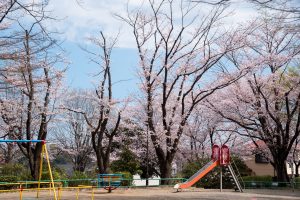Mallory Harrington on February 5, 2024
- (Via ASA) KPBS ran a story about the transformation of how children play over the last three decades from free, unstructured play to organized and supervised activities. Rebecca London (Professor of Sociology at the University of California, Santa Cruz) commented on the benefits of free play in developing social skills (such as working together and resolving disputes): “It’s not just about the play, it’s about the interaction that happens through the play. That interaction is an incredibly important part of child development.”
- Susan Brown (Professor of Sociology at Bowling Green State University) was quoted in a USA Today article about the surge of ‘gray divorce.’ Since 1990, the divorce rate has doubled for Americans over 55, and tripled for Americans over 65. Brown explained that “a growing share of aging adults will be aging alone.” Brown noted that women often initiate gray divorces, but tend to be financially worse-off due to childcare costs and time out of the workforce.
- Phys.org highlighted Martin Schröder’s (Professor of Economic Sociology at the University of Marburg) work revealing a lack of generational differences in work ethic and attitudes toward work. Despite a persistent “generational myth” in the workplace that characterizes millennials as not wanting to work and baby boomers as constantly on the brink of burnout, Schröder found that once “age effects” (younger people are generally less willing to work) and “period effects” (people of all ages generally see work as less important now than they did in the past) are accounted for, “the differences between the generations are not really that great at all.”
- In Copenhagen, Camilla Bank Friis (Sociology Postdoc at the University of Copenhagen) collaborated with BFA Transport on a new campaign aiming to prevent conflicts between public transport passengers, bus drivers, and ticket inspectors. Friis drew from her research to create videos and comic strips to share tools for avoiding conflict. “You put yourself in play as a researcher and enter into dialogue with those who will ultimately use our work,” Friis explained. “I think the project has become a good example of how a collaboration between university research and external actors can make knowledge useful if you are willing to cut off some of the academic edges.” This story was covered by Mirage News.
- The Boston Globe featured Ruha Benjamin’s (Professor of African American Studies at Princeton University) new book Imagination: A Manifesto. Benjamin’s work focuses on how science and technology shape the social world. In her new book, she argues that “imagination itself isn’t neutral or objective,” but reflects our hierarchical society. “I want us to question the imagination that says we can go to space, we can colonize Mars — and at the same time say, ‘Housing for all? Healthcare for all? That’s outlandish, that will never happen,’” Benjamin says. “It’s that sort of lopsided, deadly imagination that I want us to grow our critical antennae to hear when it’s coming.”






Comments 1
wordle — February 5, 2024
Thank you for spending your precious time sharing this rewarding information! We really need the same information! I hope you can share more.